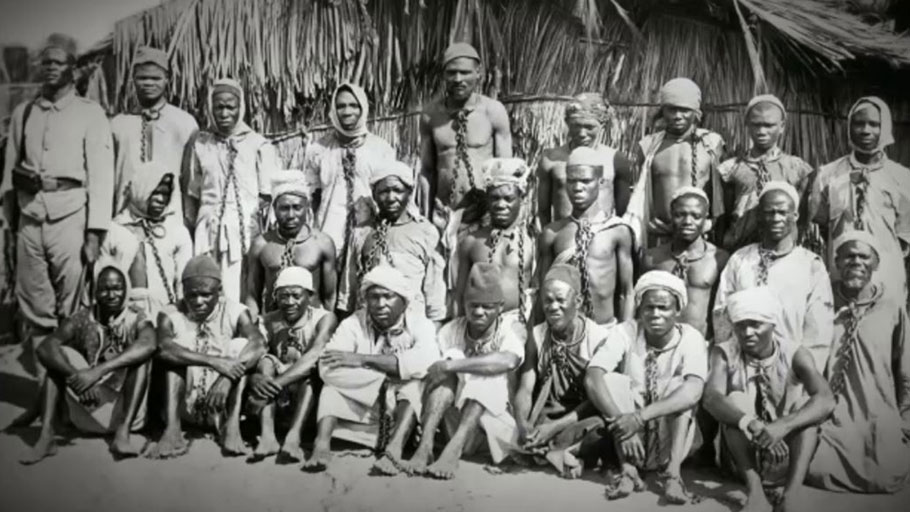To expand their wealth, the Portuguese set up the slave trade, in which Africa was the centre.
Filmmakers: Daniel Cattier, Juan Gelas and Fanny Glissant —
At the end of the Middle Ages, Europe opened up to the world and discovered that it was at the margins of the world’s main area for wealth generation: Africa.
Portuguese explorers were the first to set out to conquer Africa’s gold. When explorers reached the coast of West Africa, they saw its people as a supply of labour and the beginning of the transatlantic slave trade was established.
Economic ambition coupled with a religiously driven effort to expand Christendom Pope, Nicholas V morally endorsed the Portuguese enterprise and a legal framework for the enslavement of Africa.
“This was an extremely violent economy of predation,” explains Antonio De Almeida Mendes, University of Nantes, France. “The Portuguese would disembark and rush arms in hand to capture the inhabitants of these African coasts, starting with Mauritania and then Senegal, where poor fishermen lived. They were captured with nets.”
The Portuguese set up a triangular trading system off the coast of West Africa – between Elmina, Sao Tome and the Kingdom of Kongo.
They traded European goods for slaves in the Kongo and slaves for gold in Elmina. Sao Tome was developed into a sugar plantation. 4,000 Africans were brought to Sao Tome as slaves to work the sugar plantation every year.
It was the start of a system that later expanded across the Atlantic and thrived in the Americas.
The Portuguese were the uncontested masters of the slave trade by 1620. European ships picked up slaves from West Africa, transported them to Brazil and the Caribbean and then returned to Europe with vessels full of produce for sale.
By 1789, 7.7 million Africans were deported to the Americas.
All of Europe joined Portugal to take control of African gold and slaves including Flemish, German, English, Genoese and Venetian merchants.















